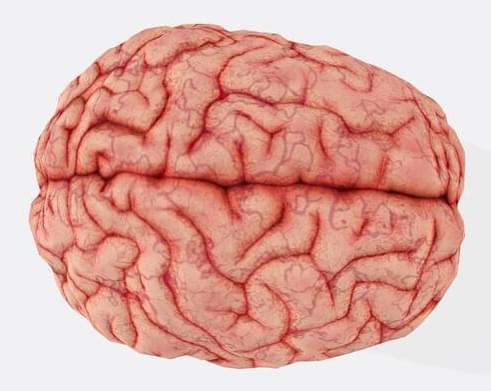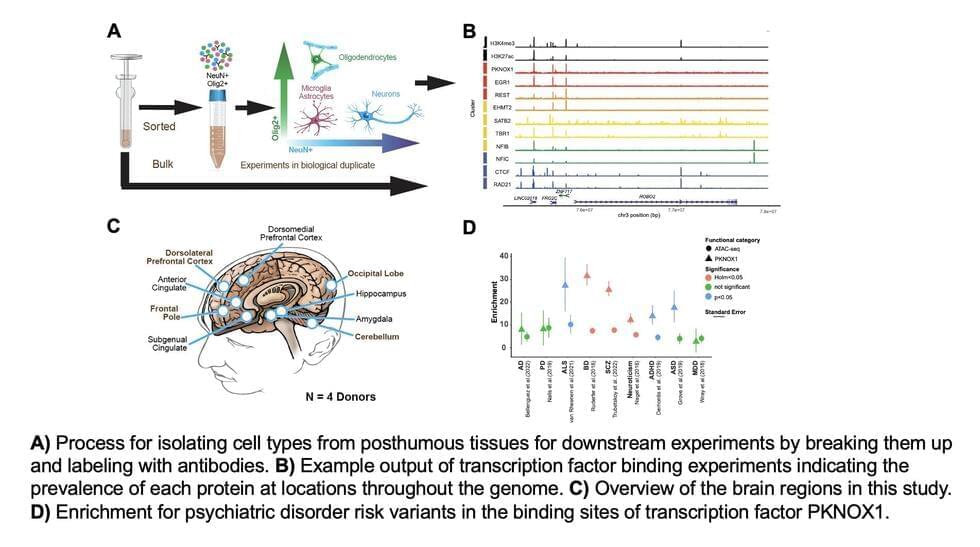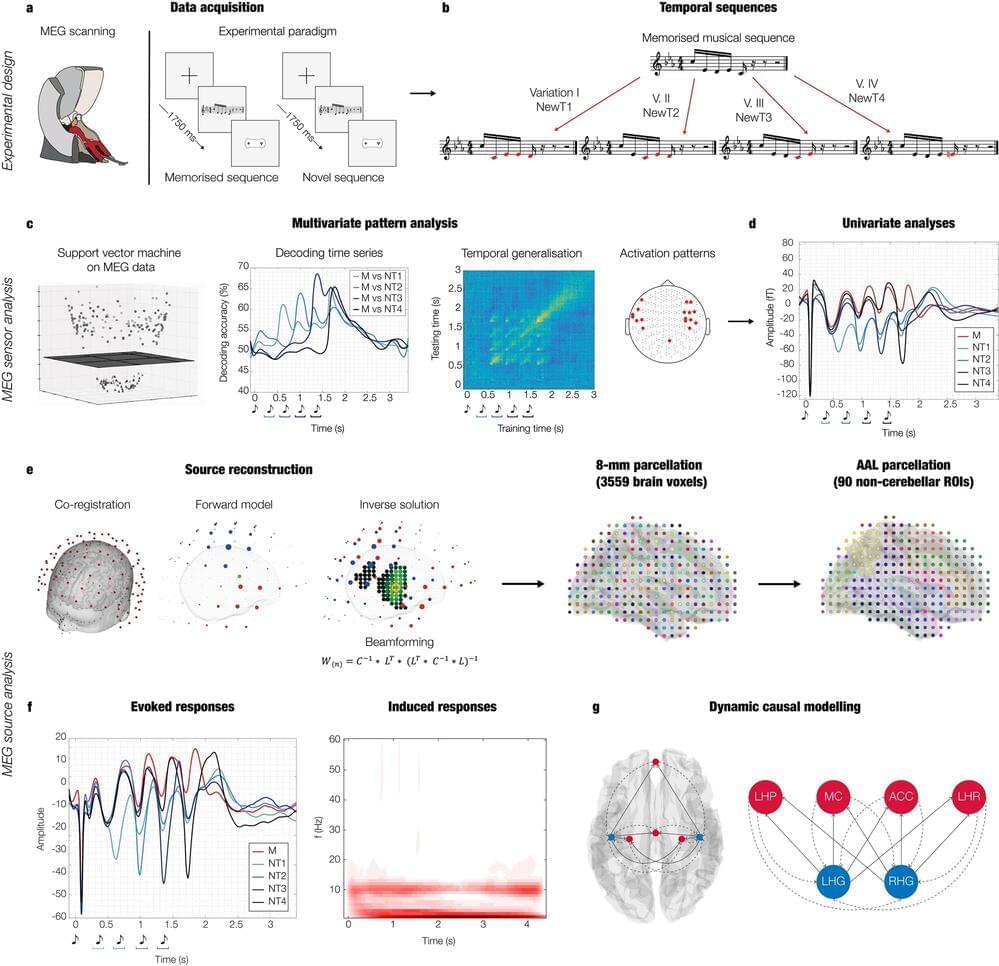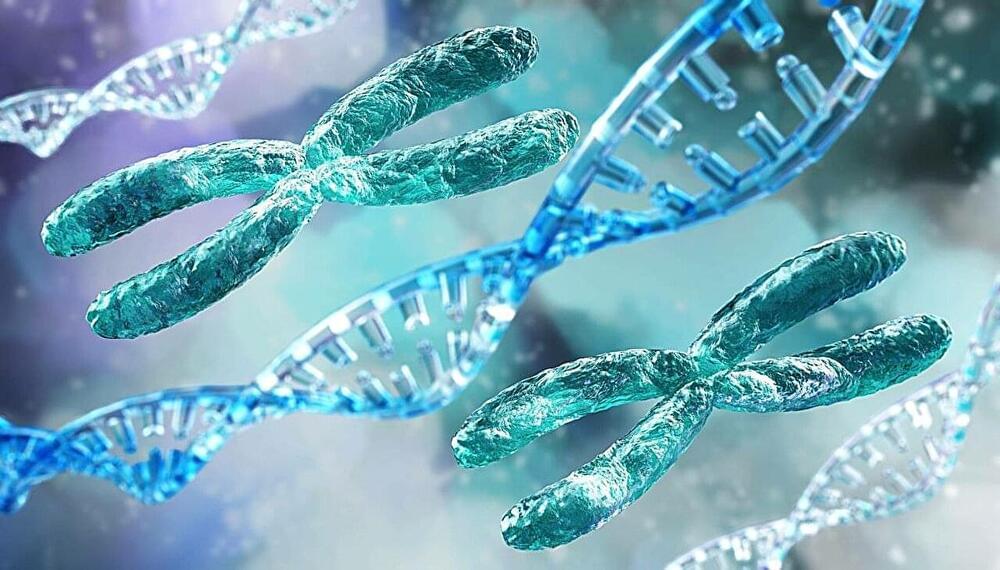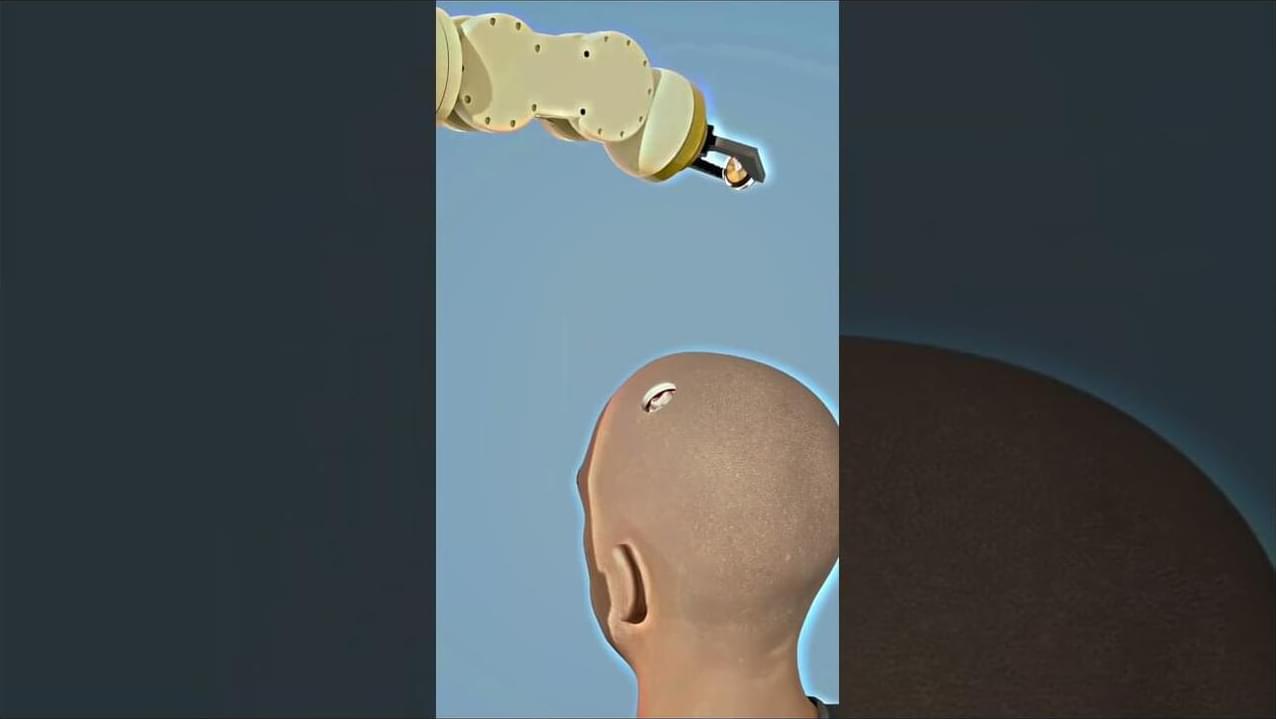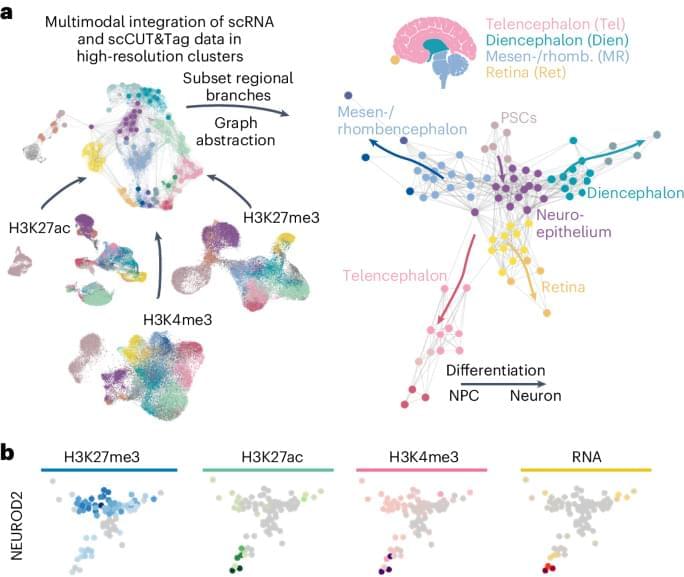Jun 25, 2024
Artificial mini-brains without animal components offer neuroscience opportunities
Posted by Dan Breeden in categories: biotech/medical, neuroscience
Researchers at University of Michigan have developed a method to produce artificially grown miniature brains—called human brain organoids—free of animal cells that could greatly improve the way neurodegenerative conditions are studied and, eventually, treated.
Over the last decade of researching neurologic diseases, scientists have explored the use of human brain organoids as an alternative to mouse models. These self-assembled, 3D tissues derived from embryonic or pluripotent stem cells more closely model the complex brain structure compared to conventional two-dimensional cultures.
Until now, the engineered network of proteins and molecules that give structure to the cells in brain organoids, known as extracellular matrices, often used a substance derived from mouse sarcomas called Matrigel. That method suffers significant disadvantages, with a relatively undefined composition and batch-to-batch variability.
